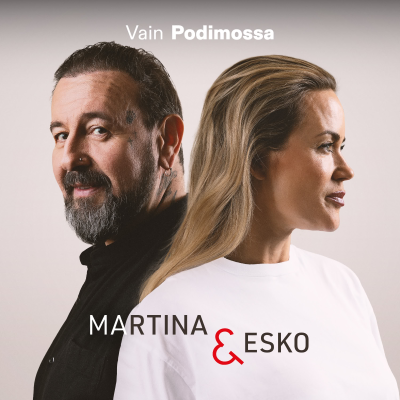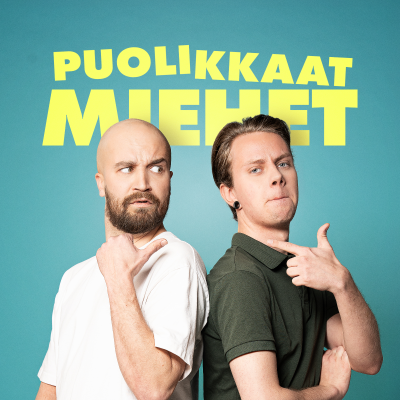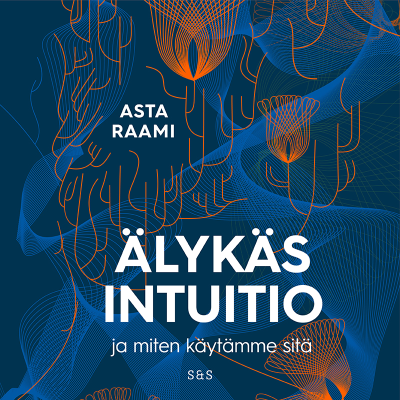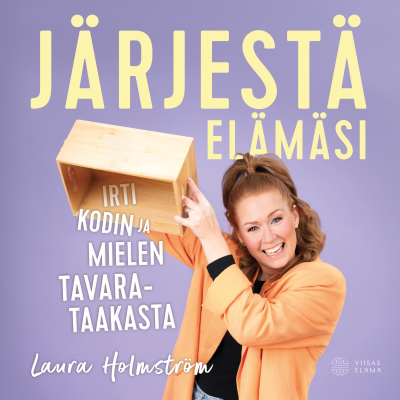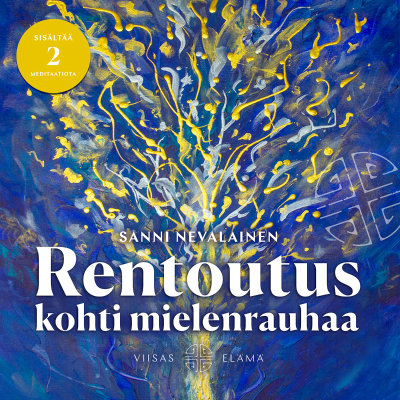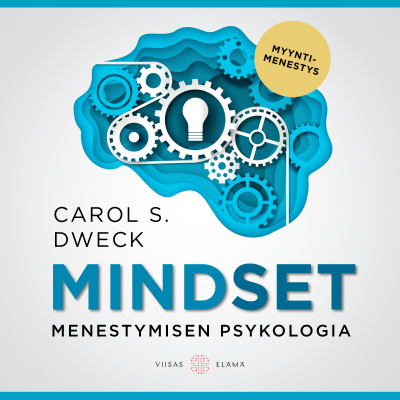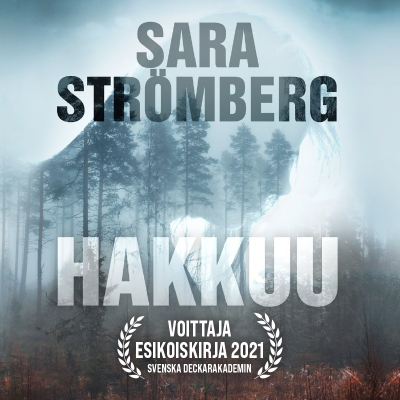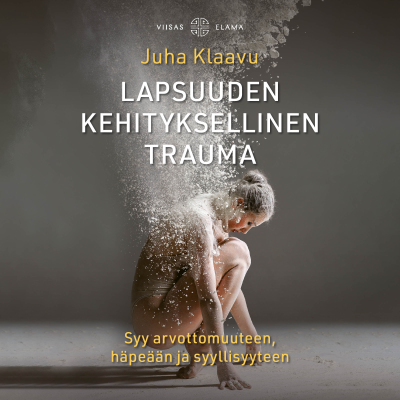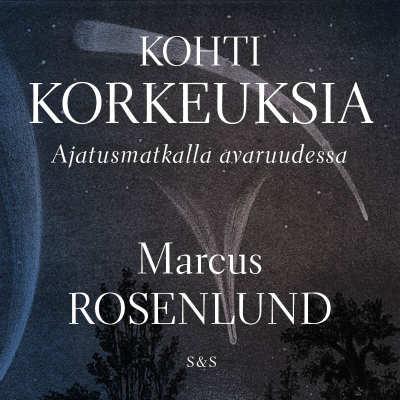
Science Magazine Podcast
englanti
Teknologia & tieteet
Rajoitettu tarjous
2 kuukautta hintaan 1 €
Sitten 7,99 € / kuukausiPeru milloin tahansa.
- Podimon podcastit
- Lataa offline-käyttöön
Lisää Science Magazine Podcast
Weekly podcasts from Science Magazine, the world's leading journal of original scientific research, global news, and commentary.
Kaikki jaksot
730 jaksotMatching sounds to shapes, and stories from the AAAS annual meeting
First up on the podcast, Newsletter Editor Christie Wilcox, Associate Online News Editor Michael Greshko, and intern Perri Thaler share their experiences from the AAAS annual meeting in Phoenix [https://www.aaas.org/events/2026-aaas-annual-meeting]. Christie recorded on location with David Rand [https://bowers.cornell.edu/people/david-rand] regarding his prize-winning Science paper on using a large language model to combat conspiracy theories [/doi/10.1126/science.adq1814]. Check out the live version of his team’s Debunk Bot [https://debunkbot.com/survey/_/home/]. Michael chats with host Sarah Crespi about the foggy outlook of science in the United States as funding levels and graduate positions decline, and the bright sunshine of young students presenting science posters [https://meetings.aaas.org/program/e-posters/]. And finally, Perri shares her reporting on OpenAI’s contribution to theoretical physics [https://openai.com/index/new-result-theoretical-physics/] announced at the meeting. Next on the show, we hear about the “bouba-kiki” effect [https://en.wikipedia.org/wiki/Bouba/kiki_effect]—the tendency for people, no matter their language, to associate round shapes with the nonword bouba and spiky shapes with the nonword kiki. Maria Loconsole [https://dpg.unipd.it/en/compcog/people], a postdoctoral researcher in the Comparative Cognition Lab at the University of Padova, joins the podcast to discuss why her team looked for this effect in freshly hatched chickens. It turns out these baby birds also make these associations [/doi/10.1126/science.adq7188], which suggests the effect has less to do with language and more to do with how vertebrate brains are set up to experience the world. This week’s episode was produced with help from Podigy [https://podigy.co/]. About the [/content/page/about-science-podcast]Science [/content/page/about-science-podcast] Podcast [/content/page/about-science-podcast] Learn more about your ad choices. Visit megaphone.fm/adchoices [https://megaphone.fm/adchoices]
Building better working dogs, and watching a black hole form
First up on the podcast, more than half of all dogs going through service animal training don’t make it to graduation. Producer Kevin McLean journeys with Online News Editor David Grimm to Canine Companions, one of the biggest organizations in the United States for training working dogs. At the facility, they meet puppies in preparation and learn about the behavioral testing and genetics that could be used to improve service animal schooling [/doi/10.1126/science.zhukxaj]. Also appearing in this segment: * Emily Bray [https://dogs.arizona.edu/people/dr-emily-bray], assistant professor in the College of Veterinary Medicine at the University of Arizona * Brenda Kennedy [https://canine.org/about/board-and-leadership/executive-leadership/brenda-s-kennedy/], chief veterinary and research officer at Canine Companions Next on the show, Kishalay De [https://dekishalay.github.io/], assistant professor at Columbia University and associate research scientist at the Flatiron Institute, talks about observing the birth of a stellar black hole [/doi/10.1126/science.Adt4853] in the nearby Andromeda galaxy. He recounts how his team looked for this elusive event and describes what we can learn from observing it in the decades to come. This week’s episode was produced with help from Podigy [https://podigy.co/]. About the [/content/page/about-science-podcast]Science [/content/page/about-science-podcast] Podcast [/content/page/about-science-podcast] Learn more about your ad choices. Visit megaphone.fm/adchoices [https://megaphone.fm/adchoices]
Engineering safer football helmets, and the science behind drug overdoses
First up on the podcast, host Sarah Crespi and Staff Writer Adrian Cho talk football and the latest science behind helmets engineered to reduce head injuries [/doi/10.1126/science.zs6zhs0]. Have better materials and testing led to fewer concussions and chronic traumatic encephalopathy in players? Next on the show, more than 100,000 people die from opioid overdoses in North America per year. Although much study has gone into addiction research, less attention has been paid to the biological details of overdose itself. John Strang [https://www.kcl.ac.uk/people/john-strang], a professor in the National Addiction Centre at King’s College London, joins the podcast to discuss the questions researchers could be asking about overdose [/doi/10.1126/science.aee8306], and how to partner with drug addicted people to find solutions. This week’s episode was produced with help from Podigy [https://podigy.co/]. Learn more about your ad choices. Visit megaphone.fm/adchoices [https://megaphone.fm/adchoices]
Shielding astronauts from cosmic rays, and planning the end of fossil fuels
First up on the podcast, how do we protect astronauts when they leave the shelter of Earth’s protective magnetic fields and face the slow, constant bombardment of space radiation? Freelance science journalist Elie Dolgin [https://www.eliedolgin.com/] joins host Sarah Crespi to discuss what we know about the damage from high-velocity particles and the research being done to curb their biological toll [/doi/10.1126/science.z0xxk8b]. Next on the show, modeling the fall of fossil fuels during the decarbonization of energy systems, with civil engineer and environmental sociologist Emily Grubert [https://emilygrubert.org/]and historian and engineer Joshua Lappen [https://pulte.nd.edu/people/staff/josh-lappen/], both at the University of Notre Dame. The pair wrote a policy forum on predicting chokepoints or “minimum viable scales” in the decline of fossil fuel networks—in effect, when a system might get too small to maintain its function [/doi/10.1126/science.Aea0972%20]. Understanding how to keep things online until they are no longer needed is important to maintain energy for all, as renewables grow and mines, pipelines, and refineries shrink. This week’s episode was produced with help from Podigy [https://podigy.co/]. About the [/content/page/about-science-podcast]Science [/content/page/about-science-podcast] Podcast [/content/page/about-science-podcast] Learn more about your ad choices. Visit megaphone.fm/adchoices [https://megaphone.fm/adchoices]
Tracking falling space debris via sonic booms, and getting drunk off your own microbes
First up with Jennie Erin Smith, Science’s new senior biomedicine reporter, we delve into: autobrewery syndrome [/content/article/how-some-people-get-drunk-their-own-gut-bacteria], when microbes inside the human gut make too much alcohol; how doctors can use a public repository, the Mexican Biobank, to guide patient care [/content/article/trove-mexican-genomes-could-help-guide-prescribing-decisions]; and preliminary findings that surgery on the brain’s plumbing [/content/article/brain-s-plumbing-inspires-new-alzheimer-s-strategies-and-controversial-surgeries] shows promise for Alzheimer’s disease. Next on the show, it’s tough to calculate when and where deorbiting spacecraft might enter the upper atmosphere and then eventually hit the ground. Benjamin Fernando [https://eps.jhu.edu/directory/benjamin-fernando/], a seismologist and planetary scientist at Johns Hopkins University, has shown that sonic booms created by fast-moving space debris shake seismic sensors [/doi/10.1126/science.adz4676], giving clues to angle of re-entry, breakup dynamics, and final location. This week’s episode was produced with help from Podigy [https://podigy.co/]. About the [/content/page/about-science-podcast]Science [/content/page/about-science-podcast] Podcast [/content/page/about-science-podcast] Learn more about your ad choices. Visit megaphone.fm/adchoices [https://megaphone.fm/adchoices]
Valitse tilauksesi
Rajoitettu tarjous
Premium
Podimon podcastit
Lataa offline-käyttöön
Peru milloin tahansa
2 kuukautta hintaan 1 €
Sitten 7,99 € / kuukausi
Premium
20 tuntia äänikirjoja
Podimon podcastit
Lataa offline-käyttöön
Peru milloin tahansa
30 vrk ilmainen kokeilu
Sitten 9,99 € / kuukausi
Premium
100 tuntia äänikirjoja
Podimon podcastit
Lataa offline-käyttöön
Peru milloin tahansa
30 vrk ilmainen kokeilu
Sitten 19,99 € / kuukausi
2 kuukautta hintaan 1 €. Sitten 7,99 € / kuukausi. Peru milloin tahansa.













